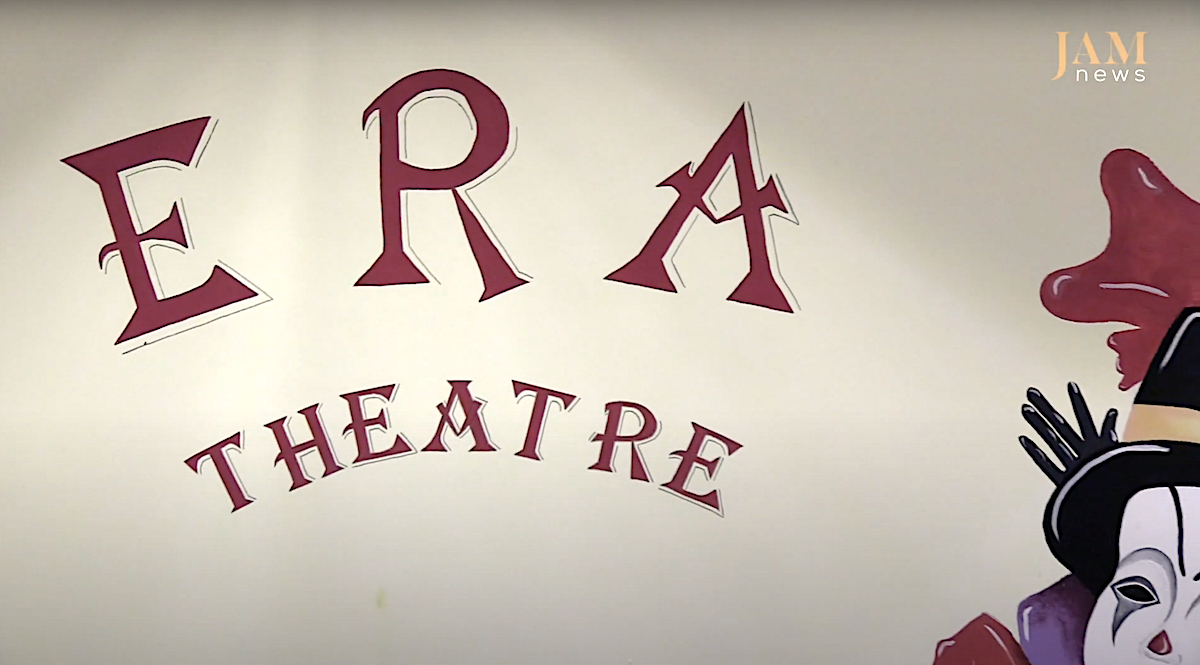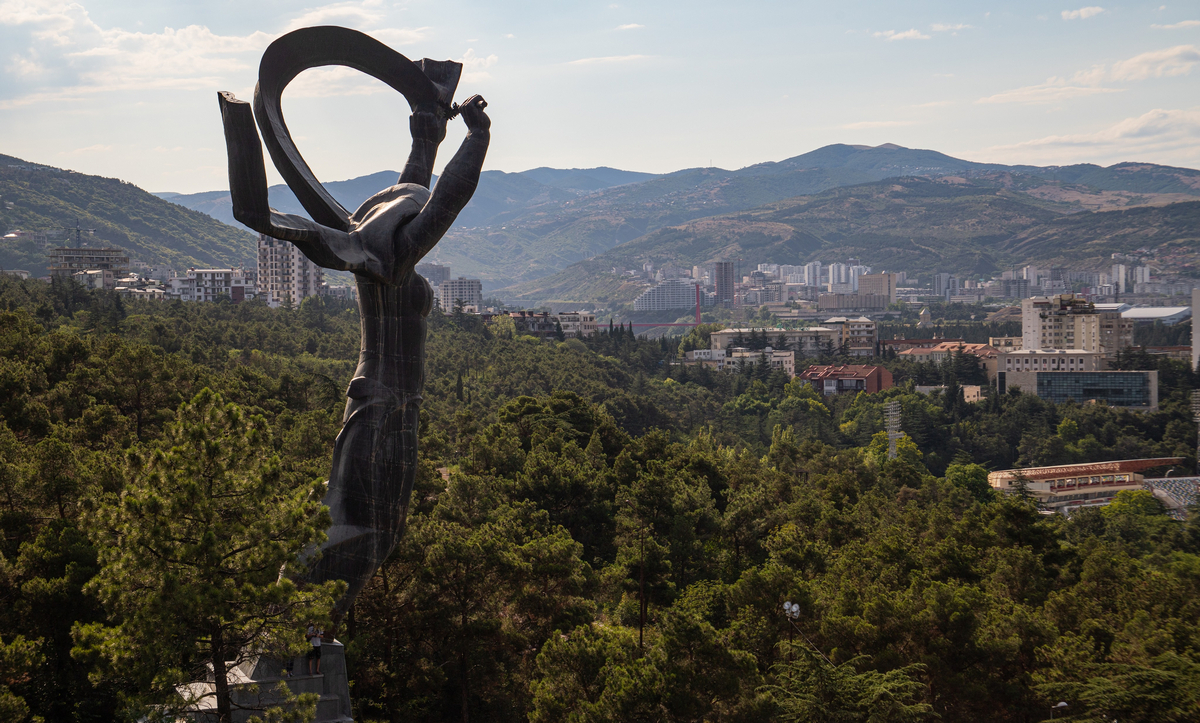Silent no more: young Azerbaijanis dare to speak out in Georgia
Azerbaijani youth in Georgia
The Azerbaijani community in Georgia is gradually coming out of isolation and integrating into society. This applies to young residents of the Kvemo Kartli region, who received education in Georgia, in the Georgian language, and today help their community to integrate into the life of the country. In a special report from Kvemo Kartli, JAMnews tells the stories of young people who changed their lives and are now trying to change the lives of the entire region and its people.
The region of Kvemo Kartli, populated by ethnic Azerbaijanis, used to be the least integrated into the rest of society in Soviet and then post-Soviet Georgia.
Citizens living in the region did not know the state language – Georgian – and during these years were less involved in the social or political processes of the country.
They rarely continued their education in Georgian universities and rarely became well-known political scientists, journalists, doctors or representatives of other fields.
The population of Kvemo Kartli is mainly engaged in agriculture, both farming and animal husbandry, and this has been the case for many years.
Traditionally, this region has almost unanimously voted for the ruling party in every election. Journalists often reported that uninformed local voters often didn’t even know who they should vote for—they only knew the ruling party number to circle.
- Georgia’s minorities: breaking down barriers to integration
- Struggle and Sacrifice: Narratives of Georgia’s Modern History
- Information vacuum – what are Georgian Azerbaijanis watching?
However, this reality is clearly changing, and the reason for this is the new generation of young people in the region.
They are fluent in Georgian, speak English, study at universities, have a strong civic stance, are brave and often loudly protest against such inhumane traditions as kidnapping of girls for the purpose of marriage, are active on social media and work in various non-governmental organizations.
“Lately, we see young people who want to make a real difference in their community. They form unions of activists and demand social justice”, says Tamta Mikeladze, director of the equality policy program at the NGO Center for Social Justice.
“It was embarrassing to hear that I am not Georgian”
24-year-old Aytaj Khalilli was born and raised in the village of Vakhtangisi in the Gardabani region. Vakhtangisi is a border village, just a few meters from Aytaj’s house is the Georgian-Azerbaijani border.
As a child, before the appearance of a checkpoint on the border of the two countries, Aytaj and her friends crossed the border without any problems, playing in a neighboring village and returning.
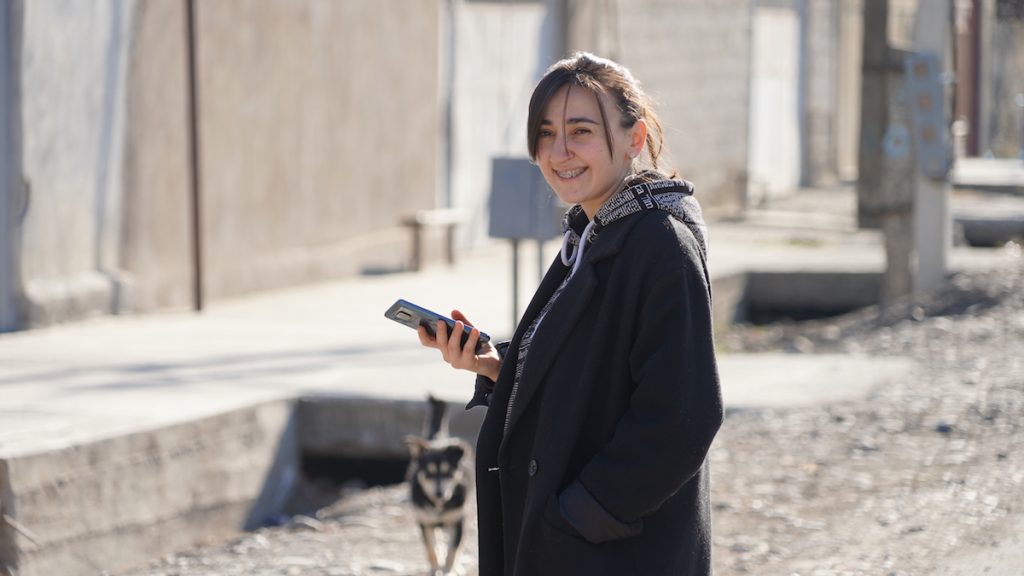
Once at home, she heard from one of the elders – the words of one Georgian politician were discussed, who said that Georgia is a country of only Georgians.
“I remember how upset I was to hear that I am not Georgian and do not belong in this land, this house. Therefore, I was very happy to live near the border with Azerbaijan, to be close to a real home, where I will definitely go as soon as I grow up”.
On the day when a checkpoint was opened at the border, separating Georgia and Azerbaijan from each other, Aytaj cried all night. She perceived this border as a barrier between her real dream home and the place where she lived.
“At school, we studied according to Azerbaijani textbooks. When they opened the first page, they saw a photo of Ilham Aliyev and the anthem of Azerbaijan. Accordingly, we linked our identity with Azerbaijan”.
Aitaj says that much in her life has changed since the ninth grade, from the day when the Georgian language teacher came to the village.
In addition to learning the Georgian language in a playful way, on the initiative of a new teacher, the children discovered “another Georgia” for themselves – if before that Aitaj thought that Georgia was just the Gardabani region, then with the help of the Georgian teacher she discovered many other places.
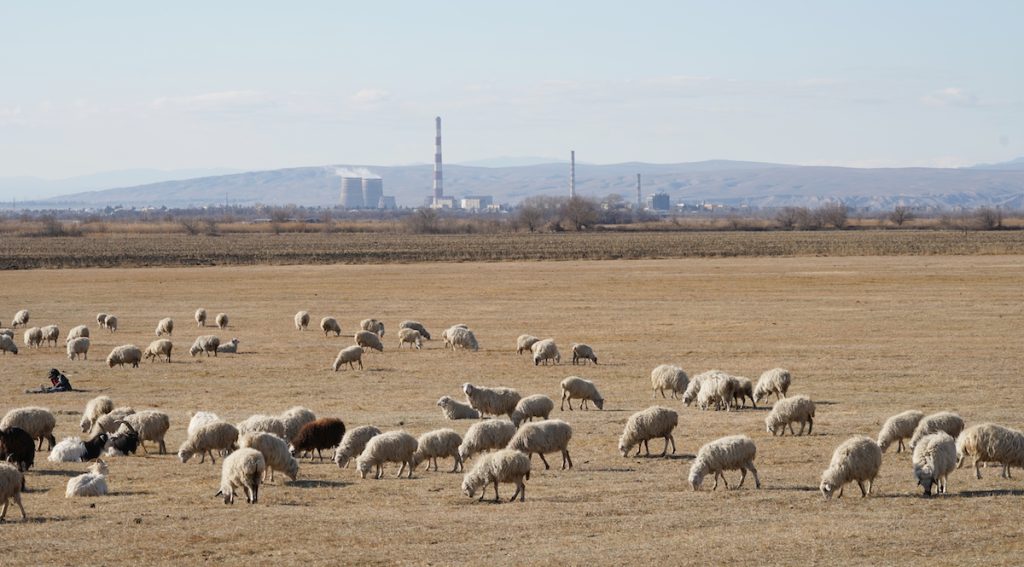
Aytaj became more active – she went on school trips and also began to participate in various school camps and competitions.
“My views and perception of Georgia have changed completely. When I saw and heard all this, I realized that I am part of a great diversity and I am one of the colors in this diversity”.
In one of the camps, Aytaj was named the quietest participant because she was ashamed to speak Georgian. She took it very close to her heart and decided to learn the Georgian language the way Georgians know it.
For two years now, Aitaj has been participating in the poetry reading competition of the famous Georgian poet Galaktion Tabidze.
“I’ve read Galaktion’s poem in Georgian and no one believed that I was not a Georgian by nationality. It was my victory”.
After graduating from school, Aytaj decided to continue her studies in Georgia and changed her mind about going to Azerbaijan.
“I read a lot in Georgian. When you know the state language of your country and can study its history, you gradually understand that you did not come from somewhere else, you live in your homeland and you are a citizen of this country”.
Aitaj graduated from Ilia State University and is currently obtaining her master’s degree at the Georgian Institute of Public Affairs.
She is also one of the activists of the non-governmental organization “Salam” and is constantly involved in various political and social processes.
On her own initiative and with her own money, she created a community center in her village, where she helps children learn the Georgian language and develop critical thinking.
She is trying to give the new generation something that she lacked in her childhood.
“I don’t want the next generation to have to go through the hardships we went through. When you belong to an ethnic minority and live in a village, the situation gets worse. Opportunities for children in rural areas are zero. Therefore, my goal is to make at least a small contribution to the development of my country”.
Language is a barrier
When we ask local youth about what kind of breakthrough has occurred in the region, everyone unanimously mentions the state programs for learning the state language that have been operating since 2009.
One of the biggest unresolved problems of integration with the rest of Georgia in this region has always been the language barrier. The purpose of these programs was to correct this situation.
The “Learn Georgian as a Second Language” program was launched in 2009, under which volunteer teachers taught Georgian in non-Georgian schools in Samtskhe-Javakheti, Kvemo Kartli and Kakheti.
Many of the young Azerbaijanis with whom we spoke consider the fact that they learned the Georgian language to be the merit of a certain teacher.
“The Georgian language teacher changed my life. If not for him, I don’t know where I would be today. We had very funny lessons – we went on school trips, celebrated Mother Language Day, put on different sketches in Georgian and celebrated Georgian holidays”, says 25-year-old Shukur Aliyev from the village of Darbazi, Bolnisi district.
Another program that, according to local youth, gave a big impetus to the integration of the region is the “1+4” program, which was launched in 2010 for ethnic minority areas of Georgia
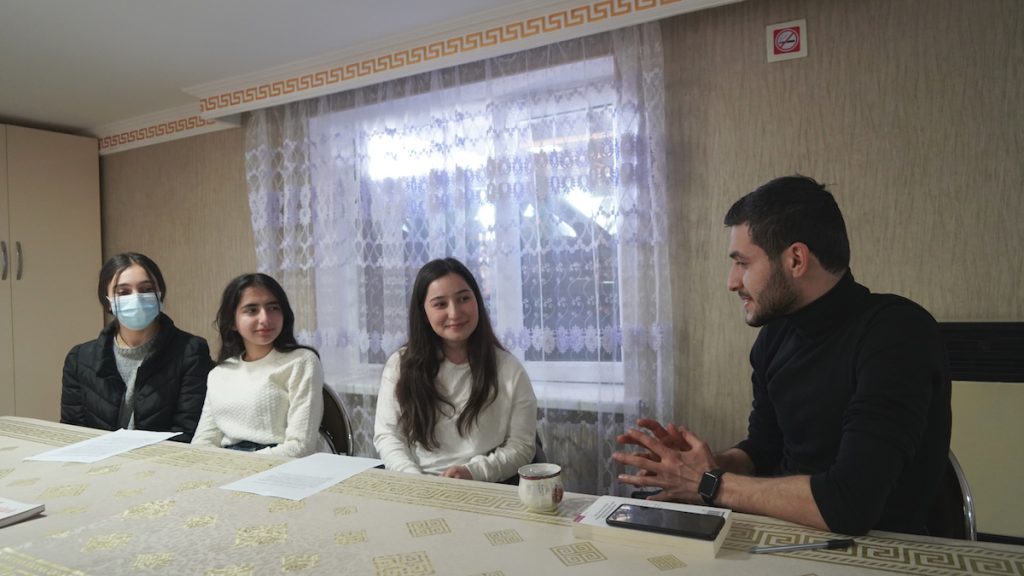
The essence of the program is as follows: to allow representatives of national minorities to take an exam in general skills at the national entrance exams in their native language – Azerbaijani, Armenian, Abkhazian or Ossetian.
However, if they pass the exam, they do not immediately start studying at the chosen faculty, but intensively study the Georgian language for one year and only after that continue their studies at the chosen faculty. That is why the program is called “1 + 4”.
The program is working. If in 2010, 247 students applied for this program, in 2018 their number increased almost five times – up to 1,231 students.
“The 1+4 program is one of the most successful projects to develop national minorities and strengthen civil integration”, says Rashan Ziadaliyev, head of the Civic Engagement Center (CEAC).
“However, there are also disadvantages. Ethnic minorities participating in this program are not eligible to participate in publicly funded priority education programs. For example, if a student enters the specialties of biology, mathematics or geography, the state sponsors him, because this is a priority subject. But in the case of the program “1 + 4” this benefit is not available. At the same time, education is expensive and costs 2,250 lari [about $700] per year. Not everyone has that kind of money. The state funds only the first 100 students with a grant. It is desirable that this program become free,” he says.
34-year-old Jeyhun Muhammadali from Marneuli is very difficult to catch. He is constantly at the epicenter of events. It covers news from the hottest and most intense places in Georgia.
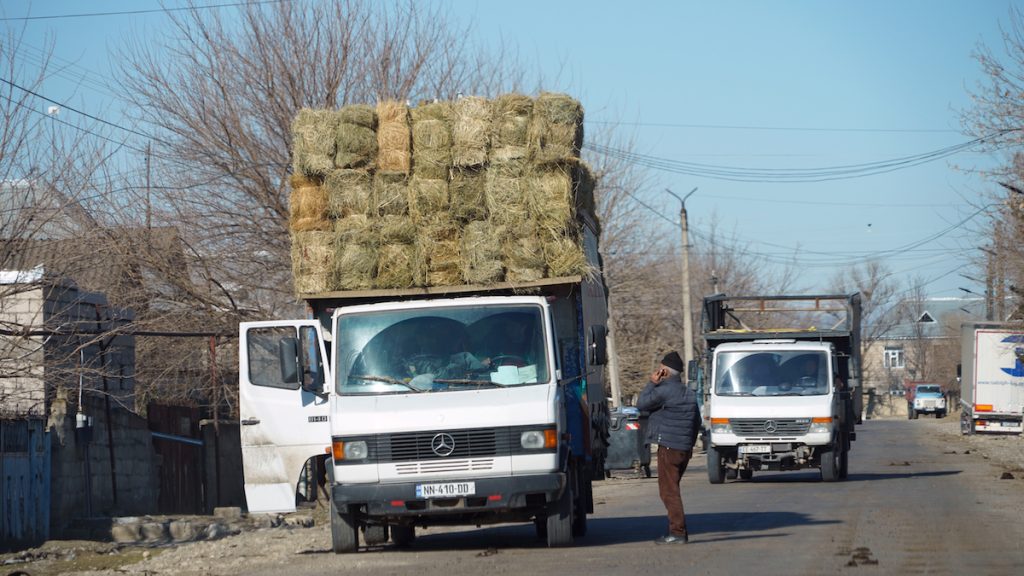
Jeyhun is a representative of the first generation of those who took advantage of the 1+4 program. He entered the Faculty of Journalism of Tbilisi State University.
He is currently a lead reporter for one of the country’s leading television companies and one of the first ethnic Azeri journalists in Georgia to cover news in Georgian and also report live.
“Before, young people went to study in Russia, Armenia and Azerbaijan, then they did not return, and the country lost its citizens. Those who remained here did not know the language and were completely excluded from society. Thanks to this project, young people have learned the language, become more active, and participate in the life of the country,” says Jeyhun.
From ethnic to “civil nationalism”
Propaganda of the idea of “civil nationalism”, promoted by the previous government headed by President Mikheil Saakashvili (2004-2012), became a significant impetus for strengthening civic engagement among ethnic Azerbaijanis, says Kamran Mammadli, a researcher at the Center for Social Justice, analyzing the changes taking place in the Azerbaijani community in Georgia. .
“If we heard the slogans “Georgia for Georgians” in the 1990s, then after Saakashvili came to power, a new wave of modernization and liberalism shook the ethnic perception… A base was created for the entry of young people into the Georgian space. Civic activism is much stronger in the Azerbaijani community today,” Mammadli says.
The emergence of the idea of “civil nationalism” and the creation of an equal environment for national minorities are associated with post-revolutionary changes after the “Rose Revolution” in 2003. However, according to some experts, this process was superficial.
“During the reign of the (ruling party from 2004 to 2012) the National Movement, statements were made about civil equality, and locals still say that they gained faith in the future after the Rose Revolution. However, apart from this, the then government did not pursue a real integration policy. It was a superficial and illusory process, based more on evoking emotions and feelings than on deeply thought-out politics. For example, the mayor of the city of Marneuli at the time was not from an ethnic minority,” says Tamta Mikeladze, director of the Equity Policy Program at the Center for Social Justice.
According to her, no cardinal reforms were carried out in the country after the 1+4 program.
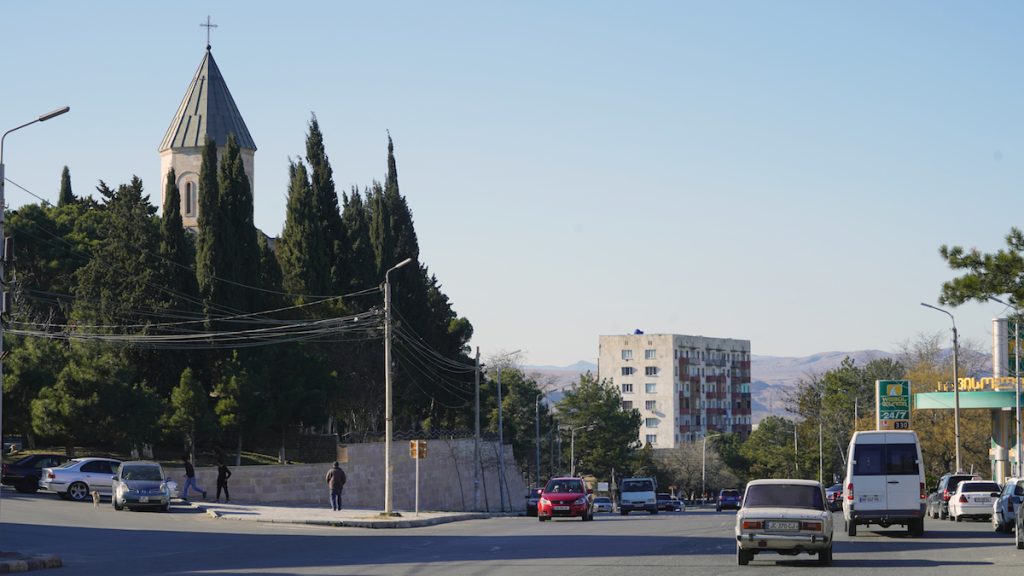
“Despite the fact that some programs have yielded results, and now we see that young people are actively trying to improve the situation in the region, the state policy towards these young people is absolutely closed. For the last two or three years, we have been actively negotiating with the government to create an advisory mechanism in parliament and government, but such a mechanism is not being created, and even the Office of the State Minister for Reconciliation and Civil Equality does not have such an advisory platform.”
“And this is against the backdrop of a deteriorating situation in the field of equality policy. Conflicts arise on religious and ethnic grounds, we see aggressive chauvinist movements and groups, and the social infrastructure in the region does not develop from year to year,” says Mikeladze.
The role of the civil sector and community centers
Speaking about the changes taking place in the region, everyone unanimously notes the work done by the non-state sector.
Shukur Aliyev, who entered the law faculty of Tbilisi State University under the 1+4 program, recalls that his classmates and Azerbaijani children in general did not even know what faculties existed in higher education institutions and how to choose a profession:
“National minorities living in villages are in an information vacuum, and if it were not for non-governmental organizations, the situation would be even worse. They give us information on all topics. Thanks to them, I developed myself, and it took me a long time to understand what I want to do.”
Today Shukur works in several international organizations.
“The role of non-governmental organizations has become decisive in terms of civic activism. The non-state sector came to an absolute information vacuum and explained to the population that it is possible to criticize the authorities. This gave a significant impetus to the development of critical thinking in the region,” says Kemran Mammadli.
Change is slow but visible, says Rashan Ziadaliyev, head of the Center for Civic Engagement and Activism (CEAC), which itself represents the Azerbaijani community.
According to him, the fact that ethnic Azerbaijanis living in Georgia were passive in terms of civic engagement and always supported the ruling party in elections was due to their ignorance:
“10-20 years ago there were no local media in the Kvemo Kartli region, and the locals did not know the Georgian language. Now five or six Azerbaijani-language media organizations work here, which has a very positive effect on the awareness of the population. Consequently, we already see that ethnic Azerbaijanis are more active in expressing their opinions about the various processes taking place in the country, as well as actively talking about discrimination in the region,” he says.
An example is the fact that the population of the region is increasingly protesting against what they do not like. For example, actions are held to protest against the difficult economic situation or the problem created around the rangelands. In 2021, part of the population of Marneuli openly supported ex-president Saakashvili, who returned to Georgia and was arrested.
The main gathering place for local youth is community centers.
These are spaces that are being developed in cities and villages at the initiative of various public organizations or activists.
Young people gather here – they read books, discuss various topics, share their experience and knowledge.
The practice of establishing community centers began in the city of Marneuli and gradually spread to many different small villages in Kvemo Kartli.
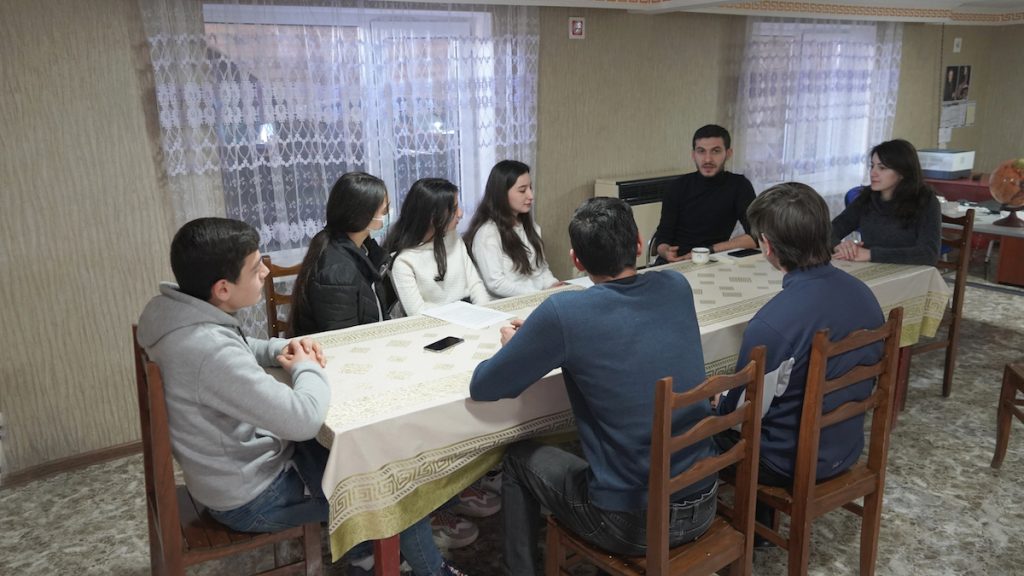
“Community centers, in turn, have made a positive revolution. Marneuli is more developed in this respect than, for example, Dmanisi and Bolnisi. Therefore, we are now trying to work in new directions. For example, we recently launched a campaign to support vaccination against Covid-19 in Dmanisi, and as a result, about 300 people were vaccinated,” says Shukur Aliyev, who conducts trainings for youth at community centers on disinformation.
“These spaces have adapted to the role of alternative education, which differs both from public schools and from short one-hour and superficial visits of non-governmental organizations. This is a synthesis of school and non-formal education, which has yielded very good results,” says Kamran Mammadli.
Main challenges
However, there are still many problems in the community that today are a challenge for the future of socially active youth.
“Knowledge of the Georgian language alone is not enough,” says Jeyhun Muhammadali. “Many people know the language, but they cannot overcome a certain barrier. There are discriminatory approaches, and we do not see ethnic minorities in high positions, including in politics.”
“For the Azerbaijani community of Georgia, or at least for the youth, the process of integration has been completed. They are already integrated, Georgia is their homeland. Now we have another problem – public recognition. It still remains a problem,” says Kamran Mammadli.
“There is a wall on the side of society that tells you that you cannot get a job and that you have no right to own land. That you have no right to criticize the mayor because we are used to you being silent and never asking for your opinion. And in general, you should thank us for the fact that you have a “1 + 4” program for which you have to pay money. Ethnically, Azerbaijani youth is ready for integration, but is Georgian society ready for this?” says Tamta Mikeladze, director of the equality policy program at the Center for Social Justice NGO.
According to her, “the level of employment of ethnic minorities is very low. Basically, their sphere of employment is only schools. In addition, there is a very low political representation of national minorities in parliament, the executive branch and even in local governments where ethnic minorities are in the majority.”
According to her, the picture in this regard is alarming. In the Marneuli municipality, where 96.4 percent of the population is ethnic Azeri, only 36 percent of city hall employees are ethnic minorities. Their number is 21.5 percent in Dmanisi and 14 percent in Bolnisi.
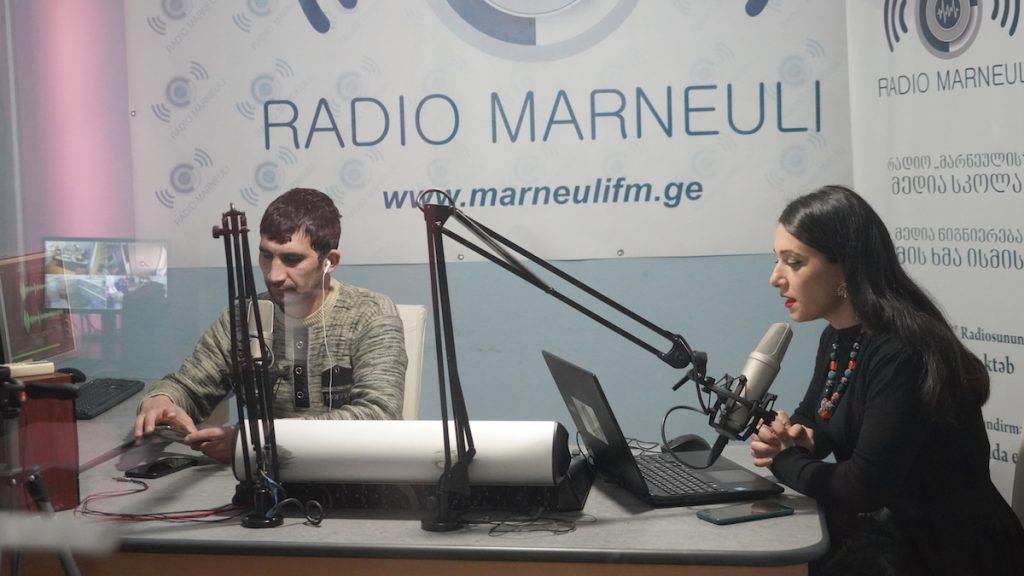
Speaking about the problems, Rashan Ziadaliyev, head of the Center for Civic Engagement, notes that one of the main problems is the very low involvement of ethnic Azerbaijanis in preschool education.
According to a survey conducted by the UN Foundation, in 2019, the proportion of ethnic Azerbaijani children in preschools in the municipality of Dmanisi was only 26 percent, despite the fact that the majority of the population there are Azerbaijanis.
“There are still many problems with the civil integration of national minorities, but I am very positive, because I see a lot of progress compared to the situation fifteen years ago,” says Ziadaliyev.
“We don’t have experience. Guidelines for how we should act, we create ourselves. I often tell the generation older than me that they didn’t do anything, didn’t speak their mind about anything. I am sure that the next generation will not have the same claims against us, because we are really doing something,” says Aytaj Khalilli.










